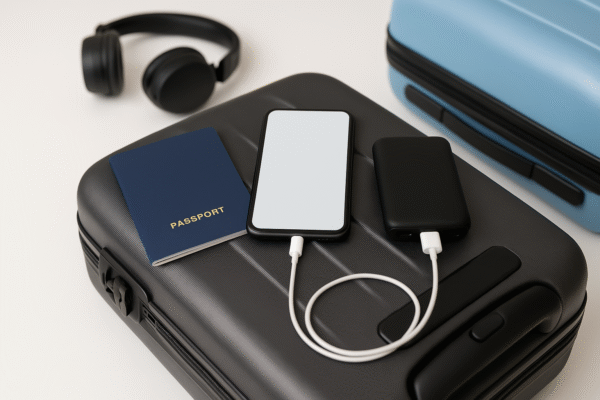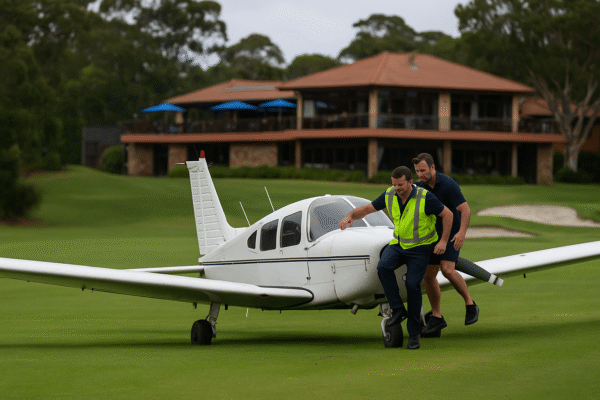As the summer travel surge continues, passengers flying with EasyJet, Jet2, Ryanair, and British Airways need to be aware of important new rules concerning electronic gadgets, lithium batteries, and smart luggage. These updated guidelines aim to reduce fire risk, prevent interference with aircraft systems, and enhance passenger safety.
Here’s a breakdown of what you must know before packing your devices.
EasyJet: Smart Bags and Battery Limits Clarified
EasyJet now strictly enforces that smart bags—those with built-in lithium batteries or USB charging ports—must have removable batteries. If the battery cannot be easily disconnected, the bag will not be accepted for travel.
Passengers are permitted up to two spare lithium batteries, each not exceeding 100 Wh, whether in carry-on or checked luggage (though caution is advised with hold storage). A maximum of 15 personal electronic devices is allowed onboard per passenger.
Jet2: Watt-Hour Limits & Cabin-Only Batteries
Jet2 mandates that lithium battery-powered devices (laptops, tablets, e-readers) must be carried in the cabin and have a watt-hour rating ≤ 160 Wh. Devices containing batteries between 100–160 Wh require airline approval before travel begins.
Power banks must be no larger than 100 Wh, used only in cabin baggage, and must have exposed terminals protected against short circuits.
Ryanair: Generous But Regulated Allowances
Ryanair allows up to 15 personal electronics and as many as 20 lithium batteries (properly insulated) in cabin baggage. Smart bags are accepted only if the battery is removed and carried separately in the cabin.
The airline aligns with the broader safety concern of avoiding thermal runaway incidents from lithium batteries, which have increased in frequency.
British Airways: Lower Battery Caps and Firm Rules on Mobility Devices
BA reinforces that up to two spare lithium batteries are allowed in cabin baggage only, each meeting packaging and lithium content limits—≤ 2g lithium metal or ≤ 8g equivalent lithium.
Battery-powered leisure vehicles (e.g., hoverboards, scooters) are strictly prohibited in both cabin and checked baggage unless cleared mobility aids.
At security, passengers may be asked to power up devices—unfunctional gadgets may be denied boarding.
Why This Matters: The Risks of Lithium Batteries
Li-ion batteries pose unique risks due to thermal runaway, where a malfunctioning battery can heat uncontrollably, causing fires that are extremely difficult to extinguish—especially in-flight.
Recent airline policies reflect these dangers. For example, Emirates will ban in-flight use of power banks starting October 2025, restricting them to cabin storage and prohibiting charging onboard.
South Korea has also strengthened rules—power banks and e-cigarettes must be kept on passengers, not in overhead bins or checked baggage—highlighting rising global concern over electronics safety.
Quick Comparison Table
| Airline | Max Spare Batteries | Smart Bag Rules | Device Limits |
|---|---|---|---|
| EasyJet | 2 × 100 Wh | Must have removable battery | Up to 15 devices |
| Jet2 | Up to 160 Wh (with approval) | Only in cabin; no hidden cells | Must follow battery policy |
| Ryanair | Up to 20 (well protected) | Battery must be removed and carried | Up to 15 devices |
| British Airways | 2 (strict lithium limits) | Smart vehicles banned | Functional device check |
Traveler Tips: Avoid Delays & Know Before You Go
- Always remove smart bag batteries and carry them in your cabin luggage, protected from short-circuiting.
- Check the Wh rating of your power bank/device battery—lie under 100 Wh unless you have pre-approval for 100–160 Wh.
- Carry only essential devices and keep a maximum of 15 gadgets to avoid excess charges or delays.
- Fully charge devices ahead of your journey—airlines may require you to switch them on during security.
- Declare if in doubt—especially for devices like e-cigarettes or mobility aids with batteries.
Final Thoughts
With increasing safety risks associated with lithium batteries, airlines across Europe are tightening rules on electronics and smart luggage. To ensure a smooth flight, passengers must stay informed and comply with their carrier’s specific rules. Safety standards may vary, but preparedness is universal.
For more travel news like this, keep reading Global Travel Wire















